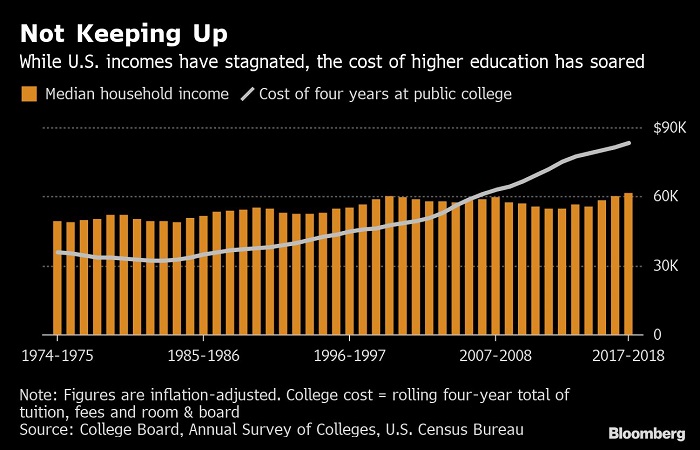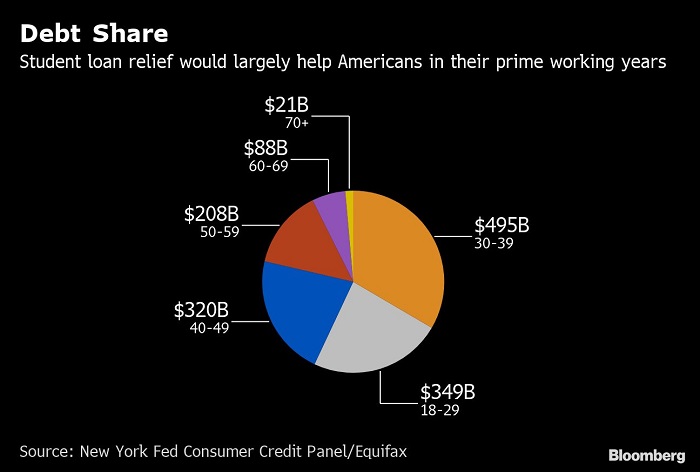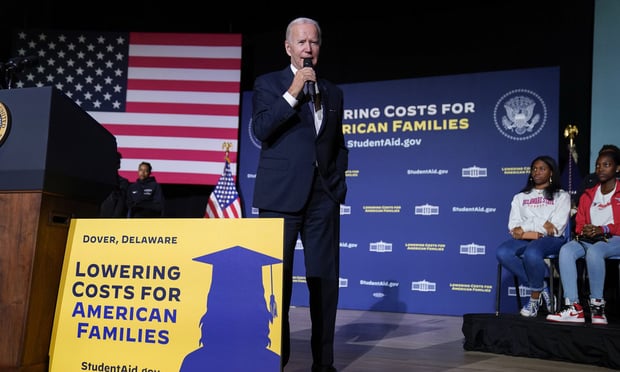 Federal Reserve economists found that student loan debt is holding
back home-buying among millennials, while the Roosevelt Institute
says a disproportionate burden falls on black Americans. (Photo:
Shutterstock)
Federal Reserve economists found that student loan debt is holding
back home-buying among millennials, while the Roosevelt Institute
says a disproportionate burden falls on black Americans. (Photo:
Shutterstock)
(Bloomberg) –Bernie Sanders caused a stir this week with his plan to tax Wall Street trades and use the cash to forgive student loans. One of his advisers makes the case for writing off those debts — even if investors don't pay for it.
Stephanie Kelton, who's advising the senator and Democratic contender in his presidential campaign, co-authored a paper that says the whole economy will benefit if America's $1.6 trillion in student debt is canceled.
It's a hot topic in the Democratic primaries, and Sanders is likely to get pushback in Thursday's second debate. Senator Elizabeth Warren, who appeared in the first one on Wednesday, has also backed writeoffs. But most candidates — like Senator Amy Klobuchar, who raised the issue last night — support measures to make college more affordable that stop short of debt forgiveness.
Kelton's 2018 paper, co-written with Scott Fullwiler, Catherine Ruetschlin and Marshall Steinbaum, argues that there'll be more consumption, home-buying and creation of new businesses once the shackles of loan repayments are removed. It says many students borrowed on an implied promise: that debt-financed degrees would more than pay for themselves, in the form of higher incomes. But the economy hasn't really delivered.
 While college costs rise, people's
income has not kept up. Chart: Bloomberg
While college costs rise, people's
income has not kept up. Chart: Bloomberg
Kelton defended the write-off plan from critics who say it's skewed toward wealthier Americans.
“People say 'Who benefits?',” she said by phone. “It's not just the 45 million people who have the debt — and, by the way, their parents and grandparents who co-signed for them. It's a much broader population.''
 Student loan relief would largely help Americans during their prime
working years. Chart: Bloomberg
Student loan relief would largely help Americans during their prime
working years. Chart: Bloomberg
Americans owe more than five times as much student debt as they did in 2004. A growing pile of research has looked at the economic consequences.
Federal Reserve economists found that it's holding back home-buying among millennials, while the Roosevelt Institute says a disproportionate burden falls on black Americans. The New York Fed said last month that 11% of loans are seriously delinquent or in default. (It added the rate is effectively twice as high, because half the loans don't currently have repayments due).
Complete your profile to continue reading and get FREE access to BenefitsPRO, part of your ALM digital membership.
Your access to unlimited BenefitsPRO content isn’t changing.
Once you are an ALM digital member, you’ll receive:
- Critical BenefitsPRO information including cutting edge post-reform success strategies, access to educational webcasts and videos, resources from industry leaders, and informative Newsletters.
- Exclusive discounts on ALM, BenefitsPRO magazine and BenefitsPRO.com events
- Access to other award-winning ALM websites including ThinkAdvisor.com and Law.com
Already have an account? Sign In
© 2024 ALM Global, LLC, All Rights Reserved. Request academic re-use from www.copyright.com. All other uses, submit a request to [email protected]. For more information visit Asset & Logo Licensing.








